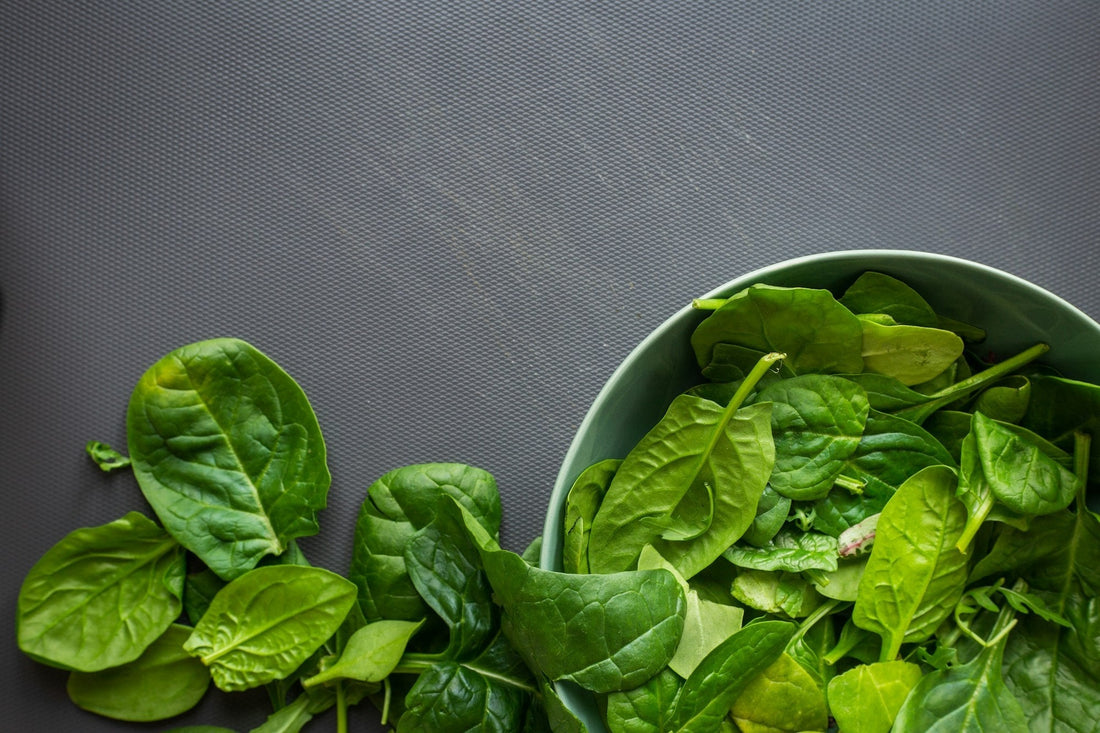We live in a world where male skincare is a growing industry! Men are starting to give their skin a little TLC, causing a boom in product development and even subscription vitamins. But the question is, can men just use all the female-centric products available? Not necessarily. Like all skincare products, every person is different, and for men, key hormonal differences may impact the type of product they need.
The lowdown on men's skin
Due to testerone, men's skin has higher sebum content and higher skin pigmentation. Men's skin is also thicker, which can lead to the appearance of deeper facial wrinkles (1). However, their skin gradually thins with advancing age.
Men also have high levels of collages production hence high collagen density, or have more densely packed fibrils in the dermis. This may be due to high amounts of male sex hormones (24).
Skincare for men
To promote healthy skin without free radical damage, a good skincare routine is a must, especially one that addresses your unique skin qualities— whether it is sensitive, normal, dry, oily, and combination2. When browsing through skin care products you might want to use, try to look for the ones that are best for your skin type. If you have sensitive skin, it would be good to use mild products without additional fragrances. If your skin is prone to acne, try products that are oil free.
Part of a good skincare routine is washing your face with a facial cleanser and lukewarm water, instead of regular soap, as these may contain ingredients that can dry your facial skin (2). Skin hydration is important for all genders.
Moisturising daily also helps reduce the fine lines and wrinkles that otherwise appear more deeply in men's skin (2).
But another means to improve skin quality is to invest in subscription vitamins, which can help increase nutrients that support skin health.
A visit to a dermatologist will help to procure good hair and skin care products based on individual skin texture.
Subscription vitamins for better skin
No matter your skin type, vitamins can help improve your skin when paired with a well-rounded diet.
Fortunately, there are great options for personalised essential vitamins in Australia. They tailor your subscription pack according to what your body needs. Among the nutrients your skin may need are:
Zinc
Zinc supports skin health by enhancing skin repair and wound healing. It has been proven to reduce skin inflammation (3). It's also been used to help manage various dermatological conditions.
Studies also show that low serum zinc levels are correlated to severe breakouts4.
Zinc skin benefits include maintaining collagen formation. Collagen is a major component of skin, along with the bones and muscles. Collagen fibres can be damaged by excess sun exposure, alcohol consumption, smoking, and lack of sleep and physical activity. When these fibres are damaged, their strength and thickness are reduced, leading to wrinkles (5).
The mineral is found in shellfish (especially oyster and crabs), red meat (beef and lamb), and dairy products (6). Vegetarians and vegans may find it difficult to maintain their needed daily intake of zinc for skin health. When taking zinc for skin, carefully read product descriptions to ensure that they are vegan-friendly.
Iron
This essential mineral is required for the production of red blood cells. Iron deficiency may result in a condition where you lack red blood cells (7), which is often characterised by pale (or yellowish) skin (8). This condition also affects your wound healing abilities (22). For those with it, taking regular iron supplements helps to relieve the symptoms and improve your skin condition, as well as support better wound-healing.
Iron has also been found by studies to support collagen synthesis (21). In addition, iron plays a role in reducing oxidative stress and damage caused by UV rays22.
Apart from taking iron supplements, you can also adjust your daily diet. Foods high in iron include grilled lamb liver, dry red lentils, unsalted cashew nuts, fried sardines, raw spinach, and firm tofu9.
*Iron should only be taken if prescribed by your doctor.
Astaxanthin
Studies have shown that astaxanthin, a xanthophyll carotenoid, possesses various benefits for skin health.
It may support skin homeostasis since it is a superior antioxidant, anti-inflammatory, and skin damage suppressant (10). It also reduces free radicals and boosts collagen formation that leads to healthier skin.
Vitamin B complex
Vitamin B Complex is another vitamin that helps support skin health by supporting stress response in the body. Stress can manifest in your physical and mental health in various ways, including making your skin look poor. Psychological stress can lead to breakouts and can damage the epidermal barrier (11).
Some B vitamins also support better wound closure, and play a role in strengthening the connective tissues that make up the skin, as well as the cells on the epidermis (23).
Vitamin B complex can be found in fish, meat, eggs, dairy products, leafy vegetables, and beans. Vitamin B12, however, is mostly found in animal-based foods. Considering this selection, vegetarians and vegans may be at risk of developing vitamin B deficiency (14). Adding vitamin B supplements to your subscription vitamin packs can add additional B vitamins to your overall nutrient intake.
Vitamin C
Much like the other vitamins and minerals mentioned here, vitamin C - or ascorbic acid - is vital for collagen formation. It helps maintain collagen networks that are needed for collagen protein synthesis (15).
Ascorbic acid is also a powerful antioxidant that neutralises free radicals and prevents cellular damage (13). Studies have shown that taking vitamin C supplements (or increasing intake of foods that are high in Vitamin C) are linked to improved skin elasticity and colour, and reduced facial wrinkling and roughness (16).
Improved skin health and reduced signs of ageing can be achieved through consumption of fruits and vegetables (including cranberries, oranges, lemons, tomatoes, broccoli, etc.) (17), and generally maintaining enough daily vitamin C intake.
Biotin
Biotin supports skin health as an essential cofactor in enzymes for fatty acid synthesis (18). Our skin cells depend on these fatty acids to help produce and maintain the skin's natural oil barrier. This protects us from the sun and other environmental toxins.
One study showed that people who consume more than 100mcg of biotin per day had noted significant improvements in their skin conditions (19).
Maintaining your skin health by consuming the right nutrients everyday may be challenging for a man. Monthly subscription vitamins through Vitable's supplement subscription and vitamin delivery plans, can help ensure that you meet your daily nutritional requirements when paired with a healthy diet. What's even better is that Vitable's custom multivitamin approach means that you can have a set of vitamins tailored to your unique needs, and all conveniently delivered to your doorstep!
Find out more about other areas that the above supplements can help you with:
Zinc | Iron | Astaxanthin | B complex | Vitamin C | Cranberry | Collagen | Biotin
*Always read the label. Follow the directions for use. If symptoms persist, talk to your health professional. Vitamin and/or mineral supplements should not replace a balanced diet.
References:
- S. Rahrovan, et.al. “Male versus female skin: What dermatologists and cosmeticians should know.” Published on 22 June 2018 on https://www.ncbi.nlm.nih.gov/pmc/articles/PMC6116811/. Accessed on 27 September 2021.
- American Academy of Dermatology Association. “Skin Care Tips for Men.” Published on n.d. on https://www.aad.org/public/everyday-care/skin-care-basics/care/skin-care-for-men Accessed on 27 September 2021.
- Gupta, M., et.al. “Zinc therapy in dermatology: a review.” Published on 10 July 2014 on https://pubmed.ncbi.nlm.nih.gov/25120566/. Accessed on 27 September 2021.
- Mogaddam, M., et.al. “Correlation between the Severity and Type of Acne Lesions with Serum Zinc Levels in Patients with Acne Vulgaris.” Published on 24 July 2014 on https://www.hindawi.com/journals/bmri/2014/474108/. Accessed on 27 September 2021.
- Harvard T.H. Chan: School of Public Health. “The Nutrition Source: Collagen.” Published on n.d. on https://www.hsph.harvard.edu/nutritionsource/collagen/. Accessed on 27 September 2021.
- Health Direct. “Foods high in Zinc.” Published on n.d. on https://www.healthdirect.gov.au/foods-high-in-zinc. Accessed on 27 September 2021.
- Abbaspour, N., et.al. “Review on iron and its importance for human health.” Published on 19 February 2014 on https://www.ncbi.nlm.nih.gov/pmc/articles/PMC3999603/. Accessed on 27 September 2021.
- Mayo Clinic. “Anemia” Published on n.d. on https://www.mayoclinic.org/diseases-conditions/anemia/symptoms-causes/syc-20351360. Accessed on 27 September 2021.
- Health Direct. “How to meet your iron needs – infographic.” Published on n.d. on https://www.healthdirect.gov.au/how-to-meet-your-iron-needs-infographic. Accessed on 27 September 2021.
- Davinelli, S., et.al. “Astaxanthin in Skin Health, Repair and Disease: A Comprehensive Review.” Published on 10 April 2018 on https://www.ncbi.nlm.nih.gov/pmc/articles/PMC5946307/. Accessed on 27 September 2021.
- Nathan, Neera. “Harvard Health Blog: Stress may be getting to your skin, but it's not a one-way street.” Published on 14 April 2021 on https://www.health.harvard.edu/blog/stress-may-be-getting-to-your-skin-but-its-not-a-one-way-street-2021041422334. Accessed on 27 September 2021.
- Long, S., et.al. “Effects of Vitamin and Mineral Supplementation on Stress, Mild Psychiatric Symptoms, and Mood in nonclinical samples: A meta-analysis.” Published on February-March 2013 on https://oce.ovid.com/article/00006842-201302000-00007/HTML. Accessed on 27 September 2021.
- Braun, L., et.al. “Herbs & Natural Supplements: An evidence-based guide. Volume 2. 4th Ed.” Published on 2015. Accessed on 27 September 2021.
- Health Direct. “Vitamin B.” Published on n.d. on https://www.healthdirect.gov.au/vitamin-b. Accessed on 27 September 2021.
- Boyera, N., et.al. “Effect of Vitamin C and its derivatives on collagen synthesis and cross-linking by normal human fibroblasts.” Published on 25 December 2001 on https://onlinelibrary.wiley.com/doi/abs/10.1046/j.1467-2494.1998.171747.x. Accessed on 27 September 2021.
- Pullar, J., et.al. “The Roles of Vitamin C in Skin Health.” Published on 9 August 2017 on https://www.ncbi.nlm.nih.gov/pmc/articles/PMC5579659/. Accessed on 27 September 2021.
- Health Direct. “Vitamin C.” Published on n.d. on https://www.healthdirect.gov.au/vitamin-c. Accessed on 27 September 2021.
- Zempleni, J. “Biotin.” Published on18 February 2009 on https://iubmb.onlinelibrary.wiley.com/doi/abs/10.1002/biof.8. Accessed on 28 September 2021.
- Mock, D.M, et.al. “Biotin deficiency parenteral alimentation: diagnosis, metabolic repercussions and treatment.” Published on May 1985 on https://pubmed.ncbi.nlm.nih.gov/3923177/. Accessed on 28 September 2021.
- National Cancer Institute. “Kerin.” Published on n.d. on https://www.cancer.gov/publications/dictionaries/cancer-terms/def/keratin. Accessed on 28 September 2021.
- Gardi, C., et. al., "Effect of free iron on collagen synthesis, cell proliferation and MMP-2 expression in rat hepatic stellate cells". National Library of Medicine: PubMed.gov. Published October 2002 on https://pubmed.ncbi.nlm.nih.gov/12234617/. Accessed on 3 October 2021.
- Wright, J., et. al., "The role of iron in the skin and cutaneous wound healing". Frontiers in Pharmacology. Published July 2014 on https://www.frontiersin.org/articles/10.3389/fphar.2014.00156/full. Accessed on 3 October 2021.
- Rembe, J., et. al., "Effects of Vitamin B Complex and Vitamin C on Human Skin Cells: Is the Perceived Effect Measurable?". National Library of Medicine: PubMed.gov. Published May 2018 on https://pubmed.ncbi.nlm.nih.gov/29672394/. Accessed on 3 October 2021.
- Tur, E., "Physiology of the skin—Differences between women and men". ScienceDirect. Published 1997 on https://www.sciencedirect.com/science/article/abs/pii/S0738081X96001058. Accessed on 3 October 2021.







